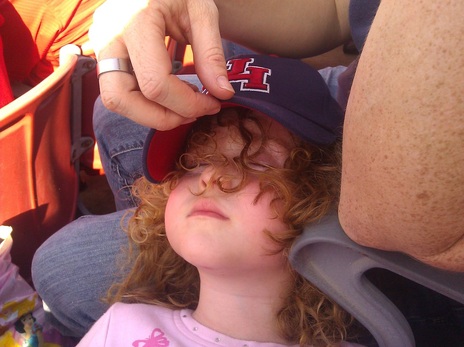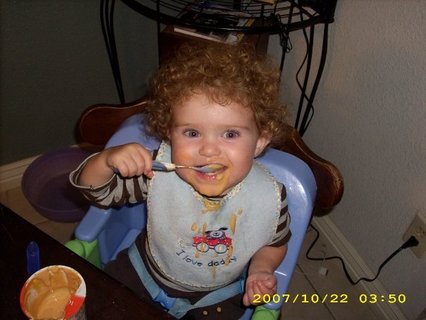
I vaguely remember one morning when Reese crawled into the bathroom, grabbed an issue of Time Magazine sitting on a rack by the toilet, and shredded it. She ripped it apart. With, I must add, much glee.
Reese also quickly made a part of her daily ritual ransacking the books on the low shelves in the study and Gatorade bottles on the low shelves in the kitchen. Many evenings a pile of plastic bottles on the kitchen floor awaited my attention after Reese fell asleep.
This is, of course, normal behavior for an infant becoming a toddler, as many of you know from experience. Reese was clearly feeling the growth of her power, the growth of her ability to influence the world according to her will.
In other, biblical words, Reese was (and still is) experiencing the growth of her kingdom (or, in her case, queendom). Of course, nowadays she is more likely to shred a morning to pieces with an argument over what clothes she wants to wear and whether she has to go to school or not.
Both then and now I’ve found it interesting how often Reese uses the power of her queendom to destroy. In days past it was ripping up Time Magazine, biting her mom, and yanking the patient cat. Nowadays Reese still yanks the patient cat with some regularity, but thankfully the biting has subsided.
Reese recognizes the negativity of her destructiveness, at least a little. I can see it in her eyes. By the time she reached three-years-old, sometimes Reese would even police her own destructiveness. Occasionally, after doing something worthy of the guilty verdict and subsequent sentence, Reese would put herself in time out without a parent being involved at all.
But still she does it. And Reese is a great kid. And Reese much more often uses her power to build up and bless. But it’s still disturbing.
It’s not just Reese. My guess it’s all of us on some level.
We all have a kingdom (or a queendom, of course). We all are given a sphere of influence in which our will and action has the power to tear down or build up. We all have a zone in which we have the undeniable ability to bless or to curse by what we say, what we do, and who we are.
The question every morning as we wake up into another day is how do we use our power? What will become of our rule on this day? Will it bring things closer to Heaven or closer to Hell? Closer to life abundant or to death despondent?
It sounds a little odd to put it that way, but I bet you know what I mean.
How do we use our bodies and our words, our time and our sex, our money and our prayers, our energy and our imagination? Do we use it ultimately to build life up or to tear it apart?
For people who follow Jesus, oftentimes such a question brings us to the gospel of John chapter 13. A few short hours before he is arrested and killed, according to John, Jesus says this to his disciples:
“I give you a new commandment: Love each other.
You must love each other as I have loved you.
All people will know that you are my followers
if you love each other.”
Context means everything. John chapter 1 described Jesus as being the powerful Word of God through which the universe was created. In John chapter 13 this same Jesus gets on his hands and knees and scrubs his disciples’ dirty feet. It is also this same chapter 13 where Jesus shares the dark reality that he is being betrayed and abandoned by the very friends he washes clean.
In his potent glory Jesus decides to use his power to serve his friends and build up their lives. In the face of betrayal Jesus uses his power to stand firm in faithfulness to God and to the people God has given him.
And he issues a call to his followers to stay faithful by building up lives through mutual care, instead of tearing lives apart through mutual betrayal. It is this faithfulness in action Jesus declares “love.”
It is this love Jesus requires of his people so that the wider world may see Jesus and know him as he truly is through them.
If you are reading this you are likely a follower of Jesus or at least mildly interested in perhaps becoming one. And so the question is posed to all of us: How do we use our power, our kingdoms (our rule, if you will) as people wanting to have their lives shaped by Jesus?
It can be well argued that this is the fundamental question of Christian discipleship.
So, how do we answer it? Not in vague generalities, but in the specifics of lives lived in real homes, offices, and schools. What is one way you answer the question today? There are, after all, better things to do with life than sitting beside the toilet shredding magazines.




 RSS Feed
RSS Feed